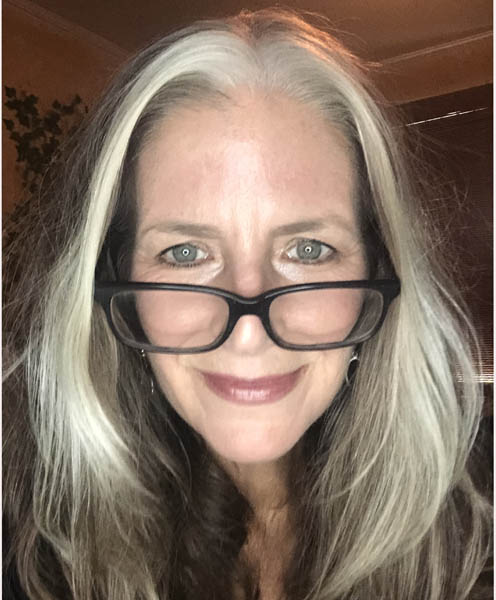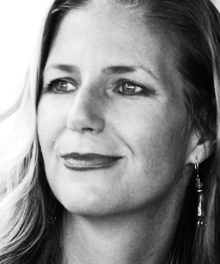First World Problem Alert:
Lately, I’ve been going through what you might call an “existential crisis” with this column.
“Existential crisis” is defined as “a period of inner conflict during which a person is distraught over questions about identity, meaning, and purpose.”
Okay, that may be a bit hyperbolic. I’m not exactly distraught.
But I’m finding it increasingly difficult to sit down and write this damn thing. As I told y’all in the last issue, I’ve been doing it for almost 25 years now – longer than I’ve been married, longer than I’ve been a mom, longer than I lived under my parents’ roof, longer than I’ve lived under my roof – and I’m wondering if it might be time, finally, to put this column out to pasture.
The problem, as I see it, is that I’ve run out of things to say.
I started writing Rants & Raves in my early 30s. I am now in my late 50s. In the interim, much has changed in my life, in this country, in the world. And I have run my big mouth – right here on this page – about almost all of it.
I told y’all about my “geriatric pregnancy” at age 36. I told you about giving birth and virtually everything that happened after that – i.e. motherhood. My child – who didn’t exist when I started writing this column – is almost 23 and about to graduate college.
I told y’all about going back to church in my early 40s, after losing my faith in college. That was almost 20 years ago. (I’m still there, still singing in the choir!) I told you about my shocking discovery that there are smart, thoughtful conservatives in the world – something I didn’t learn until, again, my early 40s. Back then, I defended them because they weren’t treated fairly – or even given a voice – in the media we all consumed. Today, conservatives have their own media that’s just as influential – and, frankly, mainstream – as what we call “the mainstream media,” so I’m no longer interested in that project.
(Also, the right vs. left/conservative vs. liberal paradigm has completely broken down in the era of Trump, so it’s no longer a useful model for understanding our politics. I’ve written about that, too.)
I’ve written ad nauseam about my love affair with nature – I fell hard in my mid 40s – and especially my obsession with birds. I’ve written about movies, books, and TV shows, Big Tech and Artificial Intelligence, and – of course – our soul-killing, society-shredding divisions in the USA.
I’ve probably written too much about that particular preoccupation, so you’ll be happy to know that I have come to the end of my rope with it. When even the smartest, most honorable people I know are uninterested in bridging those divisions – uninterested in understanding each other even a little bit – throwing up my hands in defeat (finally!) seems like the only alternative.
Reader, I’ve grown weary.
I think this might be something that just happens to columnists who’ve been writing for a long time. They write themselves out. Longstanding topics of interest – and even passion – simply lose their spark.
Remember how NY Times columnist David Brooks used to write about politics, almost exclusively? For decades, he was the Times’ token “conservative,” though conservatives around here never thought he fit the bill. Anyhoo… these days, Brooks writes mostly about matters of social psychology, morality, and spirituality. He hardly talks about politics at all, and when he does, it feels like he’s phoning it in. He’s just OVER it.
Trust me, a columnist knows.
And then there’s Maureen Dowd, also at the Times. For decades, I read her for her wit and style, if not necessarily her analysis, which always seemed somewhat shallow – to me, anyway. Like Brooks, Dowd wrote mostly about politics, though from a leftward perspective. She still does, but, like Brooks, she doesn’t seem that interested anymore. What mostly interests Maureen these days – and, again, a columnist knows – is English literature. She went back to school a few years ago and got her MA in English, and suddenly her column was filled with delightful, insightful literary references that weren’t there before.
She developed a new fascination and her column changed. In my opinion, it got better. Developed more depth. But maybe that’s just because I, too, am more interested in English lit than politics, more interested in the wisdom of the ages than the opinions of the day.
Or maybe I’m just temporarily tired of language and its vast limitations.
I was chatting with my friend Louise at the Fillin Station Friday night. Her husband is a drummer and was playing in the band. I told her, “I can’t stay late. I have to get up early and finish my column in the morning.”
“What are you writing about?” she asked.
“I’m halfway through it and I’m still not sure,” I laughed. “So far, it’s all about how I don’t feel like writing this column anymore.”
“I think I’ve read that one before,” she said.
“Yeah, I write it every couple of years, at least,” I replied.
“Maybe you could write about the restorative power of live music,” she suggested.
Not a bad idea, I thought. But this thought followed immediately: I’d rather just enjoy it than write about it. In fact, I’d rather just dance.
Which I did. And it felt amazing.
In his book The Master and His Emissary: The Divided Brain and the Making of the Western World, psychiatrist Iain McGilchrist says, “Compared with music all communication by words is shameless; words dilute and brutalize; words depersonalize; words make the uncommon common.”
Who would argue with that wise revelation? Of course, it’s not lost on me that McGilchrist used words to express it.
And I will probably continue using words, too. For better and worse, it’s what I do. Who else do you know that would write 1000 words about not wanting to write?
What can I say? It’s a gift.








